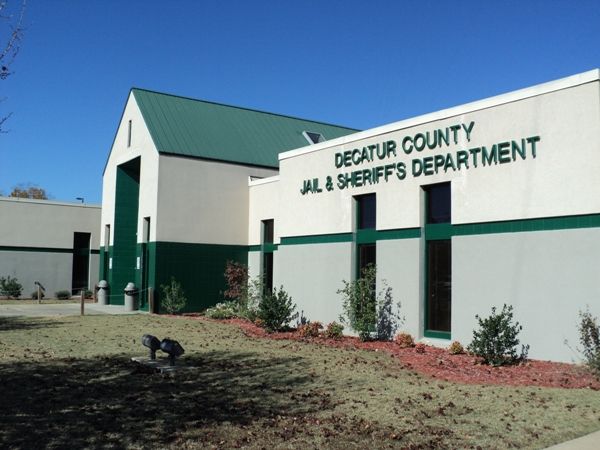
Decatur County commissioners have requested a jury trial in response to the City of Bainbridge’s petition that a judge appoint a mediator to resolve service delivery issues.
The City of Bainbridge filed its petition on November 14, and Decatur County Commissioners filed their response on December 18.
The service delivery agreements essentially spell out how core local government services will be provided and how the costs and responsibilities will be shared between multiple governments within a county.
The City of Bainbridge’s petition asked the Decatur County Superior Court to appoint a senior judge from another judicial circuit to preside over mediation. Bainbridge Mayor Edward Reynolds said that the request for mediation became necessary after Decatur County officials did not respond to previous requests for sit-down meetings to discuss the issues.
In its response prepared by the Tifton office of law firm Hall Booth Smith, Decatur County commissioners state that the City of Bainbridge’s petition is “not ripe for adjudication” and request that the matter be resolved by a jury trial of 12 people.
Decatur County commissioners and Bainbridge officials differ on a key point: whether or not there was a mutual agreement to “revisit service delivery agreements” after agreeing to renew how to distribute money from the Local Option Sales Tax (one cent from the seven cents of sales tax paid in Decatur County).
The most recent LOST negotiations in 2012 were contentious, with the City of Bainbridge requesting a larger share of LOST distributions and Decatur County rebuffing them. The two sides had taken steps to enter into dispute resolution, however the Georgia Supreme Court found in 2013 that the dispute resolution process was unconstitutional.
According to City of Bainbridge officials, the LOST negotiations were only resolved because there was a deadline for submitting documents to the state government; the LOST distribution formula was kept the same as in previous years, with mutual agreement to re-visit service delivery issues at a later time.
See Related Story: City of Bainbridge sues Decatur County; asks judge to appoint mediator
In their response, Decatur County commissioners essentially claim that under state law, the City of Bainbridge should have addressed any service delivery issues at the time of the LOST negotation.
By entering into the LOST distribution agreement, the City of Bainbridge “necessarily agreed to the then existing service delivery strategy and cannot now seek to correct some perceived inequity that they were duly bound to correct in October 2013.”
According to the county’s response, the current service delivery agreement is valid through 2017, and in the county’s view, nothing has happened that would warrant re-evaluation of service delivery until that time.
Decatur County makes the claim that “Under the current, LOST distribution, the citizens of Bainbridge enjoy a greater measure of property tax relief than citizens in the unincorporated portion of Decatur County.” The county’s view is that would offset any service delivery inequity that may exist.
The current LOST distribution is as follows:
Decatur County – 53.45 %
Bainbridge – 41.38 %
Attapulgus – 2.46 %
Climax – 1.63 %
Brinson – 1.06 %
According to Decatur County Administrator Gary Breedlove, LOST negotiations reached a stalemate when both the county and the city governments sought two percent more, without reducing the share of Attapulgus, Climax and Brinson–or effectively, a four percent gap.
Citing the fact that three new county commissioners will be sworn in in January 2015, Decatur County’s response asks the judge to delay any further proceedings for 90 days, to allow the new county commissioners to review the City of Bainbridge’s petition.
Decatur County seeks a reapportionment of the current LOST distribution to correct what it claims is a “property tax inequity which disadvantages the unincorporated taxpayers of Decatur County” relative to taxpayers in the City of Bainbridge.
Before the response was filed, city officials have argued that taxpayers within city limits also pay taxes to the Decatur County commissioners, as they are also Decatur County residents. According to the city’s analysis, each person in Bainbridge pays $233.18 per year for county services they don’t receive. Mayor Reynolds said that figure is for every resident of Bainbridge, property owner or not, so the per-household figure would be larger.
The Georgia Service Delivery Act was adopted as state law in 1997. The law states “the process … is intended to minimize ineffeciency resulting from duplication of services and competition between local governments and to provide a mechanism to resolve disputes over local government service delivery, funding equity and land use.”
Both sides have asked for a judge to impose reasonable attorney’s fees and expenses upon the other party.



Be the first to comment